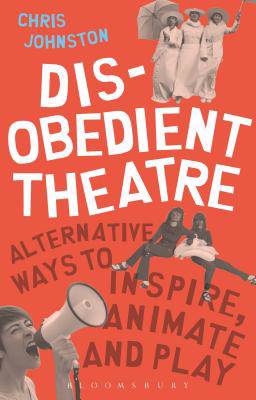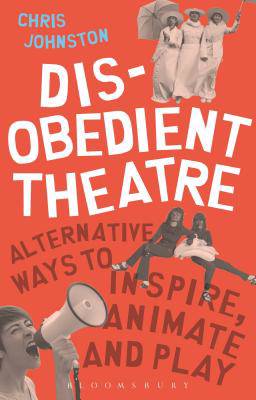
- Retrait gratuit dans votre magasin Club
- 7.000.000 titres dans notre catalogue
- Payer en toute sécurité
- Toujours un magasin près de chez vous
- Retrait gratuit dans votre magasin Club
- 7.000.0000 titres dans notre catalogue
- Payer en toute sécurité
- Toujours un magasin près de chez vous
186,95 €
+ 373 points
Format
Description
Theatre is at its best when it is disobedient, when it argues back to society. But what enables it to achieve this impact? What makes it a force to be reckoned with? What are the principles and the tools of the trade that shape it to be effective, powerful and resonant? Drawing from both theory and practice, and informed by conversations with recognized practitioners from across the UK, this book provides answers and makes an impassioned call for artists to reimagine, question and disrupt.
Divided into two parts, 'In the World' and 'In the Room', the book presents a rounded picture of the possibilities of a 'disobedient' culture and includes many games and exercises for creative practitioners. In Part One the author offers a lexicon defining the spirit and impulse which characterises disobedient theatre: he describes the principles, the strategies, and the voice of the artist, before suggesting ways to survive as a creative practitioner. Part Two illustrates how these principles may be worked out in practice when creating new work, with the hands-on approaches supplemented by games and exercises to assist in generating material.
Disobedient Theatre is for all those who have an interest in what makes theatre powerful, disturbing or even life-changing. It is a book for artists, thinkers, activists and all who believe in the function of art to offer new possibilities and to change and inform the evolution of society.
Divided into two parts, 'In the World' and 'In the Room', the book presents a rounded picture of the possibilities of a 'disobedient' culture and includes many games and exercises for creative practitioners. In Part One the author offers a lexicon defining the spirit and impulse which characterises disobedient theatre: he describes the principles, the strategies, and the voice of the artist, before suggesting ways to survive as a creative practitioner. Part Two illustrates how these principles may be worked out in practice when creating new work, with the hands-on approaches supplemented by games and exercises to assist in generating material.
Disobedient Theatre is for all those who have an interest in what makes theatre powerful, disturbing or even life-changing. It is a book for artists, thinkers, activists and all who believe in the function of art to offer new possibilities and to change and inform the evolution of society.
Spécifications
Parties prenantes
- Auteur(s) :
- Editeur:
Contenu
- Nombre de pages :
- 264
- Langue:
- Anglais
- Collection :
Caractéristiques
- EAN:
- 9781350014534
- Date de parution :
- 19-10-17
- Format:
- Livre relié
- Format numérique:
- Genaaid
- Dimensions :
- 140 mm x 216 mm
- Poids :
- 449 g

Les avis
Nous publions uniquement les avis qui respectent les conditions requises. Consultez nos conditions pour les avis.






